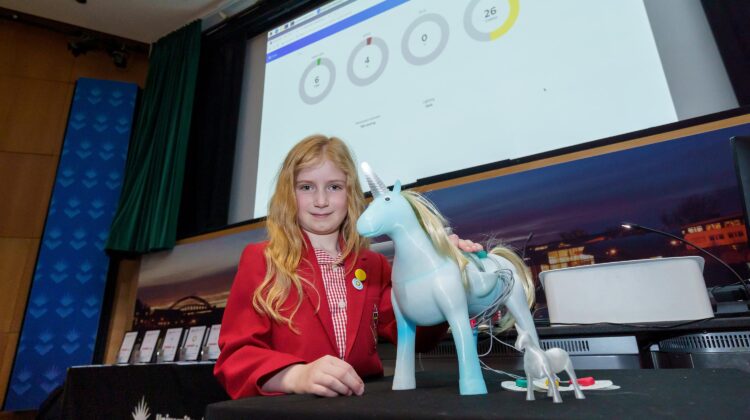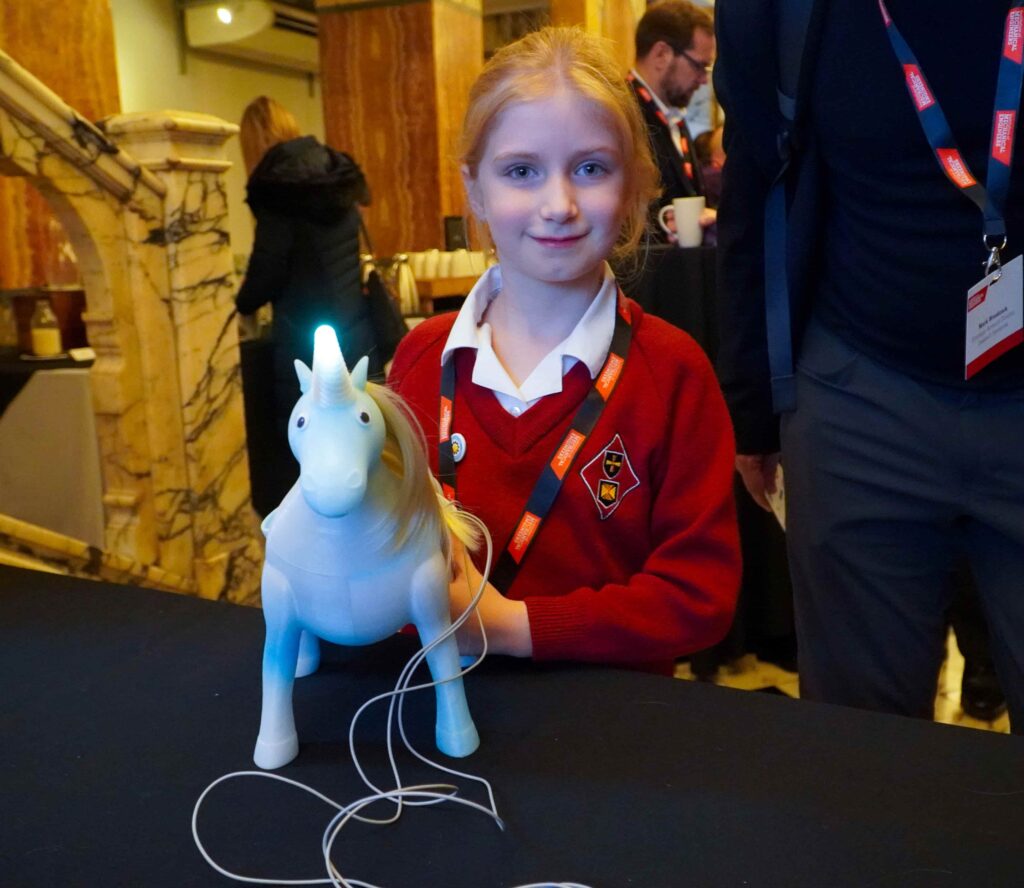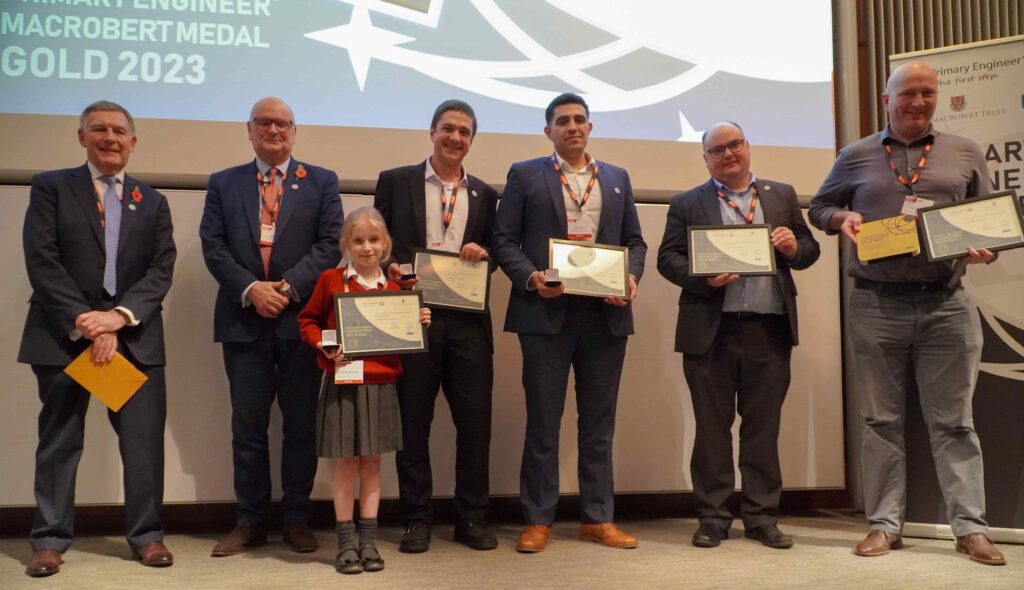
A school pupil whose engineering talents were discovered at the University in Sunderland has gone on to win a top prize at a prestigious national awards ceremony in London for her children’s hospital invention.
Francesca Mobberley of Dame Allan’s Junior School in Newcastle first wowed a panel of engineering experts in 2022 with her Unicorn Health Bot (Unibot), which is designed to keep children calm in hospital and offer a pleasant distraction while using electronic sensors in its horn to read important information including heart rate, oxygen levels and temperature.
The eight-year-old’s design was crowned the regional winner of the Primary Engineer annual Leaders Award competition, ‘If You Were an Engineer, What Would You Do?’, which was hosted by the university at its David Goldman Technology Centre, St Peter’s Campus.
The national competition sees tens of thousands of pupils across the UK, from reception to Year 13, identify problems – large and small – and design solutions to solve them. All entries are graded by engineers and all pupils receive a graded certificate.
When the competition returned to the university in June this year, Francesca’s Unibot was revealed for the first time as a working protype, thanks to a ProtoTeam made up of Spyros Fakiridis, electronic and electrical lecturer Abdu Shaalan and David Knapton, associate head of the university’s School of Engineering. They also created a smaller 3D model for Francesca to take home with her.

‘The idea demonstrates the importance of engineering technology in solving problems in other sectors, and enabling ideas from the classroom to become a reality is a privilege,’ Knapton said. ‘We used technologies from industrial monitoring proven through our research, together with experience in product design, to enhance Francesca’s idea. The result is an interactive toy that can monitor patients’ vital health statistics and transmit results to medical staff in a hospital. This can improve patient experience and comfort.’
In November this year, Francesca and Sunderland’s ProtoTeam were among the school pupils, university partners and engineers from across the UK who travelled to London for the award ceremony for the prestigious Primary Engineer MacRobert Medal, which celebrates the people who’ve turned the ideas of school pupils into reality.
The awards consisted of three gold medals, two silver and two bronze. Francesca’s Unibot prototype received a gold prize.

‘We are thrilled that our hard work has been recognised and presented with this award against a high level of competition,’ Knapton said. ‘We are thankful to Francesca for the idea. It is pleasing to see the future of engineering is in safe hands and impressive to see a range of such inventions to solve real-world problems – many of these were on a sustainability or healthcare theme. As for the future of the Unicorn Health Bot, there are so many areas this could impact on future research, and we hope soon to be able to test this more fully.’
While developing the prototype, Knapton and the team worked closely with colleagues from the university’s Helen McArdle Nursing and Care Research Institute. ‘The Health and Care Interdisciplinary Research Network supports health-based research, innovation and knowledge exchange activity across all faculties, explained head of the institute and professor of health services research Yitka Graham. ‘‘I was delighted to have a further opportunity to work with the university’s School of Engineering to support the Young Engineer project by arranging a focus group with the Young Person’s Group at South Tyneside and Sunderland NHS Foundation Trust. Together with Abdu, we presented the prototype and collaboratively explored ideas with the group, getting first-hand feedback from potential service users to help refine the design and explore wider potential for use across a range of healthcare settings.’
‘At the outset, the young people who entered the competition may not have known what engineering is, but now they know what engineering does – it helps people, saves the planet and makes the world a better place, said Susan Scurlock MBE, founder and chief executive of Primary Engineer. ‘The quality of the ideas and designs has completely blown us away this year, with it being an exceptionally tough job for the judges to decide the winners from our shortlisted prototypes, all of which have incredible potential to impact the real world.
‘What these inspiring school pupils, university students and engineers have shown us above all else is that “If you were an engineer, what would you do?” is a question that has the potential to change more than we know!’


